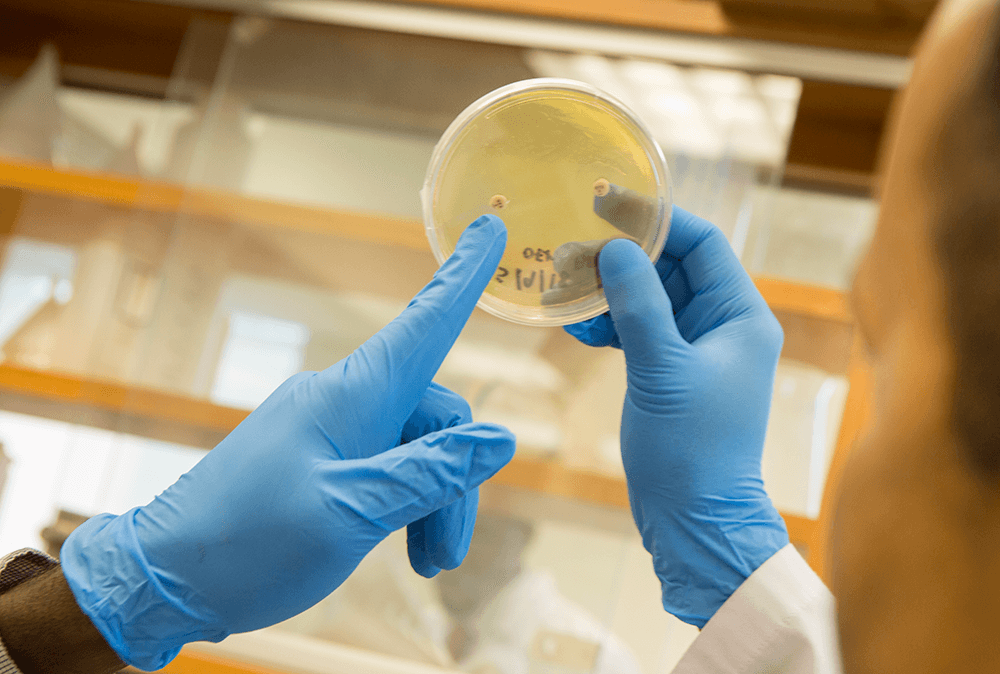Discover the Benefits of a Career as a Pathologists’ Assistant
High-Paying, In-Demand Healthcare Career Can Have You Helping Patients Without the Expense of Medical School

Are you looking for a medical career that lets you make a significant difference in patients’ lives — but doesn’t require you to go to medical school? As a pathologists’ assistant, which requires a master’s degree, you’ll be instrumental in providing patients with answers about their health and giving doctors the information they need to create treatment plans and save lives.
You’re probably already familiar with the work of a pathologists’ assistant — and there’s a good chance they’ve had a hand in your medical care at some point during your life. They’re often found working in pathology labs or forensic labs, analyzing fluids and tissue samples, examining organs removed during surgery and diagnosing diseases. If you’ve ever had routine blood work or a biopsy, a pathologists’ assistant probably processed your results.
“Pathologists’ assistants evaluate surgical specimens to understand why they were removed so the team can understand the nature of the disease process and formulate a treatment plan,” explains Dr. Gabriel Levi, a pathologist at Mt. Sinai. “They don’t work with patients, but they do work for patients — providing concrete, objective answers.”
Dr. Levi shared an example from his own team, where a patient seemed to have acute appendicitis and the appendix was removed by a surgeon. After removal, the pathology team examined the appendix and discovered that the patient actually had a ruptured diverticulum that was unrelated to infection or inflammation. “You get to have the answer,” enthused Dr. Levi. “In most clinical medicine, it’s trial and error, but in pathology, you work and actually get to the answer.”
While many people seem to think the field of pathology primarily involves autopsies, Dr. Levi says that’s not true. Some pathologists’ assistants do work in the medical examiner’s office or morgue to determine cause of death, but most work in labs in hospitals or medical facilities examining specimens from patients. Some even provide frozen section intraoperative consultation, working in the operating room (OR) with surgeons to immediately evaluate specimens during surgery so the surgeon can determine what to do next.
No matter which path you choose, it’s safe to say that there are plenty of job opportunities, with one outlook estimating that pathologists’ assistants have four jobs waiting upon graduation. As healthcare costs soar, more and more providers are turning to pathologists’ assistants to perform lab work and support medical professionals like doctors, surgeons, nurses, researchers, medical examiners and coroners. In fact, the field is expected to grow by 7 percent in the next eight years, adding nearly 25,000 jobs by 2029.
To pursue a career as a pathologists’ assistant, you will need to build on an undergraduate degree in life sciences (like a Bachelor of Science in Biology or Chemistry) with a two-year pathologists’ assistant program. In most cases, this means you’ll earn your master’s degree, and then you’ll need to pass certification and licensing tests in the state where you plan to practice.
Once you’re a fully-trained, licensed and certified pathologists’ assistant, you can expect to earn an average annual salary of about $87,000 per year. If you decide to practice in New York State, that average salary jumps to anywhere between $90,000 to $110,000.
At Touro College, the newly launched Pathologists’ Assistant Master of Science program is designed to build the knowledge and skills you’ll need to become a licensed and certified pathologists’ assistant and leap into this rewarding career in medicine. The only one of its kind offered in the State of New York, this new curriculum will provide you with immersive biomedical training — along with access to the latest technology and state-of-the-art anatomy, pathology and histology laboratories at our Harlem campus.
“Pathologists’ assistants are constantly in demand, and the need is expanding,” said Dr. Levi. “As fewer and fewer pathologists enter the field, we’ll rely more and more on pathologists’ assistants — and it’s a rewarding job. The pay is good, the hours are regular and it’s really gratifying to be able to give patients answers.”
Are you ready to pursue a challenging but rewarding and in-demand healthcare career? Contact Touro College today to find out more about our new Pathologists’ Assistant Master of Science program and how you can apply to become part of our inaugural class.

